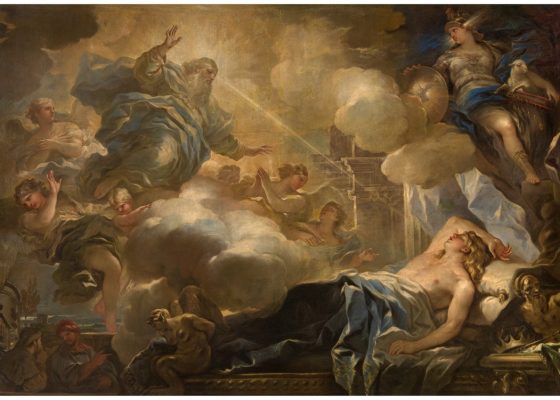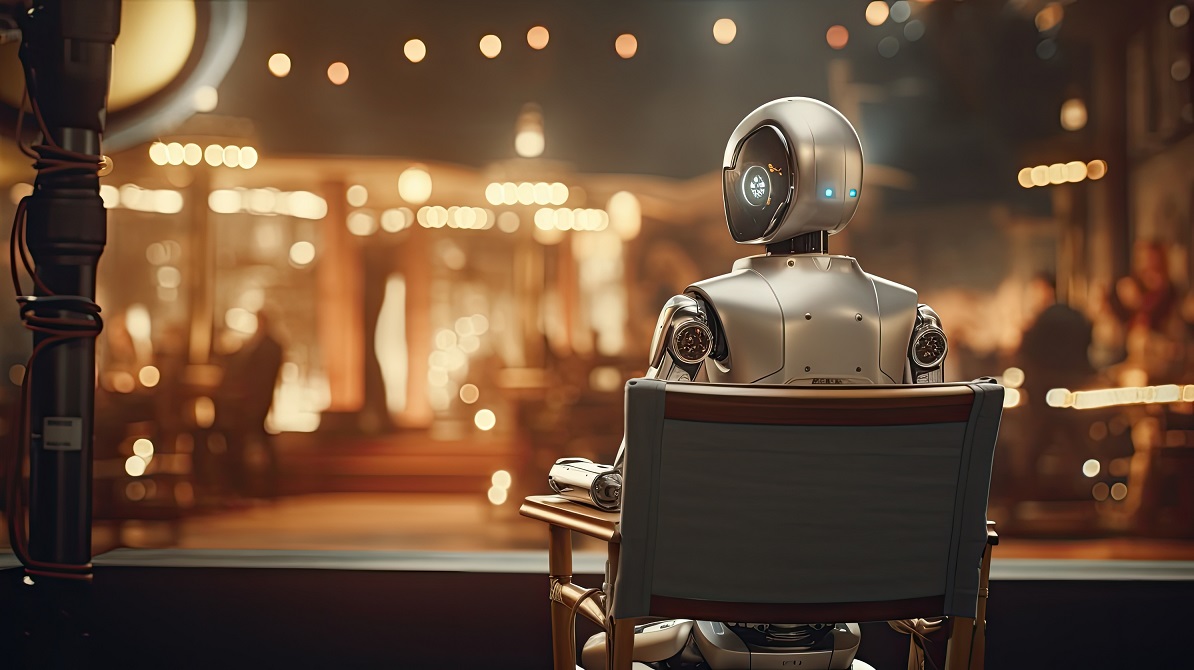
When Wu Man first enters the lobby of the vibrant Westwood community of Los Angeles’ stylish Palomar Hotel, she looks more like a casually-dressed soccer mom than the most famous pipa player in the world. Busily checking her smart phone for messages she looks up and smiles. Warm greetings abound as we settle into the luxurious surroundings.
Wu Man asks, “Do you mind?” as she removes a hearty sprout sandwich, offering half. “I’ve just come from lecturing 500 scientists at UCLA about the importance of music in their lives.” Immediately it becomes apparent: this is an amazing woman, one who is able to design many worlds.
Originally from Hangzhou, China, Wu Man quickly became hailed as a child prodigy in the Pudong School of pipa playing, studying at conservatories in Beijing before eventually migrating to the United States in 1990. Today she’s widely recognized as the top pipa player in the world, the first Chinese-born artist invited to perform at the White House. Her innovative style has grown to incorporate Western classical influences and attract the respect of virtuoso collaborators Yo-Yo Ma and Isaac Stern.
During the course of our meeting Wu Man speaks with an eager enthusiasm imparting her love of not only music but of her most important mission; that of an artist. Our discussion includes what it means to be a world-famous performer bridging the gap between traditional Chinese culture and the modern Western world – as well as being a mother.

INTERVIEWER: Thanks for taking the time to meet with me today. It’s apparent you have a hectic schedule. My first question is how do you get ready to perform? Is there anything that you do prior to going on stage, such as meditation, that allows you to focus enabling you to deliver a great performance?
WU MAN: I think of being a musician as part meditation and part performer. It’s also very physical and you need powerful concentration. An actor uses his voice to speak; we use our instrument. You have to remember the music and get out there. You’re a performer. There’s a whole theory about playing on stage. Before the curtain rises a lot of performers want to go to the bathroom because they’re nervous and excited. It’s not easy.
INTERVIEWER: What are some of the differences between Eastern and Western cultures that you hope to bridge?
WU MAN: I grew up in China, studied traditional Chinese music. It’s in my blood; it’s in my body. Living in the States…I ask myself… what can I do? How can I work with other musicians to create something new, something different, more today… as a musician? I don’t separate…okay, this is Chinese music, this is Western music. There’s only music. That’s my experience.
INTERVIEWER: Given you had an extremely different upbringing in China, how do you compare that to how you raise your son here in the U.S.?
WU MAN: (Laughs)…Very differently. He’s 13 now; a teenager. When I grew up in China, the whole parent/child relationship was very different. Kids basically grow up always listening to their parents. Parents are the boss; even if I were to disagree, I couldn’t say…I had to follow what my parents decided for me to do. Music, basically, my parents chose for me. They said “pipa.” They understood that it was a part of Chinese culture and very classical. A lot of literature and poems in ancient times describe it. It’s a very intellectual and cultural instrument in China. The shape is also very elegant, feminine. I wasn’t allowed to say no.
INTERVIEWER: How old were you?
WU MAN: I was 9 or 10. It was in the 70’s and we didn’t have TV — no entertainment. We studied music. Learning to play became my playtime.
INTERVIEWER: When you began, how long was your day related to music?
WU MAN: I had a normal elementary school day and afterward homework, and then I’d practice. Basically it’s like any other artist, musician, or sports person that is successful. They also spend many hours practicing, and my experience was the same. I didn’t have any playtime with my friends. Playtime was music.
It was very different from my son’s world: homework, computers, Skype, games… I don’t know if my experience was good or bad. But now when I talk to my parents, maybe it was good…because now I am!
INTERVIEWER: Maybe there was wisdom behind their choice.
WU MAN: The concept is very different from Chinese culture to Western culture. With Chinese parents, in the early days the kids are kind of pushed, ordered to do this, no matter…yes, you have to do this. (That’s what) I’m trying to do now. My son wants to learn the piano, do some sports, go to China and go to school. He says, “Mom, I hate it, I don’t want to do it!” I say, “Fine, but you have to.” He says, “Why?” I say, “No why. You have to!”
INTERVIEWER: Does it work out that way?
WU MAN: He says, “Mom, I hate you, I hate you! I don’t want to!” I say, fine, you will thank me later… Parents know their children better than they know themselves. That’s a Chinese tradition. I look at my son and see myself at his age. I know exactly what he’s thinking.
INTERVIEWER: Does he play a musical instrument?
WU MAN: Yes, he plays the piano. He started when he was six, so now he’s been playing for eight years. Many times he says, “I want to quit.” I say, okay let’s quit. Are you sure you really want to quit? He says, “No.” I tell him: I don’t want you to be a musician, but you have to have some music (in your life). Music makes people think. Music makes people’s brains smart.
A lot of people say they’re not musical. I say no, everyone can sing. You don’t have to sing opera, but you can sing. Everyone can move their body with the music. It’s human; it’s basic. It’s good to start with children: the focus isn’t on being a musician but on being an artist. You begin with art and it will open your mind. It doesn’t matter if you want to be a scientist, a writer, dancer, or a chef. You’ll still have music in your system and you will be a different person.

INTERVIEWER: I learned that your father is an artist and that you use some of his work on stage as backdrops.
WU MAN: Yes, my dad is an artist.
INTERVIEWER: Who is your favorite visual artist and why?
WU MAN: While I was in college I really enjoyed the Impressionist style of the French; Monet and Renoir. Van Gogh I saw as really strong. My father’s style is classical Chinese; he uses brush and rice paper. But somehow the French artists give me imagination. I look at their paintings: soft colors, lotus blossoms on the pond. Then the strong colors of Van Gogh, exaggerated strong colors, I had never seen before. Like music, the contrast was very big. Like pipa music. We have different styles: military, strong, and then like a meditation, very quiet, soft.
INTERVIEWER: Would you compare that to the yin/yang of Taoism?
WU MAN: Yes, very true.
INTERVIEWER: Do you have a favorite pop singer, star or movie?
WU MAN: Filmmaker Ang Lee. He’s not only a director, he’s a scholar. I think even though he’s in a commercial situation, I think his movies are never commercial. He’s a good storyteller.
INTERVIEWER: Does any one particular movie stand out for you?
WU MAN: His early movie – I did a soundtrack – Eat Drink Man Woman. The story is about the relationship of a man and his three daughters. The father is a chef; a lot of scenes in the kitchen, very enjoyable and funny.
INTERVIEWER: I love the subtlety of the visuals in your show, the Chinese calligraphy. It’s very touching… along with your music, beautifully done. I don’t know much about Chinese art, except they tend to paint landscapes that tell a story.
WU MAN: Yes! That’s the difference between Chinese music and Western music. Chinese music always describes something. Everything has titles like “Sunset” or “Temple Bells.” Very poetic.
INTERVIEWER: One of your titles; “Footprints in the Snow,” is very visual.
WU MAN: That’s very much Chinese music. Visual. Imagination. It offers you a suggestion. As in a painting; you will see water, a little boat, and lots of space. The space is there for your imagination…very abstract. Western music is always Symphony #2, Symphony #3, Sonata #1, and Sonata G Major.
INTERVIEWER: With Taoism having taken root in China along with Buddhism, how have these philosophies influenced your life or perhaps your parents?
WU MAN: My grandma is Buddhist, but the years I grew up religion was pretty much forbidden. I remember my grandma singing to me, but in her daily life there were no temples to go to worship.
INTERVIEWER: Was that difficult for your grandma?
WU MAN: I think she’s accepted it, as she never talked about it. In celebrating the New Year there were no Buddhist ceremonies in urban areas. If you lived in the remote countryside, it was very active.
INTERVIEWER: I listened to your piece called “Full Circle.” It sounded aboriginal.
WU MAN: Oh, yes. The pipa improvised with the Australian didgeridoo.
INTERVIEWER: Very haunting.
WU MAN: Yes, it is haunting; it was recorded in the woods.
INTERVIEWER: Recently I listened to your wonderful recording called “Immeasurable Light.” Was that a piece that you had written?
WU MAN: It was ancient, from the 12th Century, and is the first world recording of early pipa music. That music existed in the Tang Dynasty and the manuscript was discovered in Japan.

INTERVIEWER: How are you able to play ancient music?
WU MAN: I worked with a musicologist from the University of Arkansas, a professor whose specialty was early Chinese lute and early pipa music. He’s spent 40 to 50 years (studying it). Basically, he transcribes ancient notation to modern notation. Ancient notation explains the right hand, which finger on the left hand, and how long, and on which strings.
INTERVIEWER: That must have been an arduous task requiring tremendous focus.
WU MAN: The whole project required eight years. I had the idea, started working, then chose the piece, interpreted it, and made the recording. Many pieces don’t exist in China. The music was written on silk fabric, and a scholar in the late 19th Century discovered them in a cave in the western part of China.
INTERVIEWER: Do you experience any challenges taking your music back to China?
WU MAN: Now, nothing. Chinese music has always existed in China and never really stopped. However, during the Cultural Revolution we played music very differently: revolutionary songs, more propaganda sounding. All the classical pieces we learned but did not play in public — which was how so many children continued to learn an instrument.
INTERVIEWER: When did you first hear the pipa?
WU MAN: When I was little. I heard the pipa and other Chinese instruments on the radio and I liked the sounds. My father’s friend played the pipa and offered to teach me.
INTERVIEWER: What was the first song you remember hearing on the pipa?
WU MAN: Probably some kind of revolutionary song.
INTERVIEWER: As a child, were there special occasions that you would play?
WU MAN: Oh yes, on the New Year. And my friend’s parents always asked me to play for them, which I hated.
INTERVIEWER: Your concert combines music, dance and literature. Why did you choose these literary pieces and what significance do they hold for you personally and culturally?
WU MAN: When I started thinking of how to put a concert together a few a years ago, I wondered how to combine the pipa music with painting, calligraphy and poems – the four Chinese cultural elements – along with hi-tech computer design. The goal is to have the audience have a full experience – lifted musically and visually – and at the same time, when they walk out, something stays, they remember. And they want to know more about Chinese culture.
INTERVIEWER: I understand that you are a part of Yo Yo Ma’s Silk Road Ensemble. Can you tell us a little about working with other disparate Asian instruments and musicians?
WU MAN: I’ve been working as a part of this ensemble for more than 10 years. It’s a natural way to work with musicians from Mongolia, Iran, Palestine, China, Japan, and America as well. I remember when we rehearse or have jam sessions; very, very joyful. Working with Persian musicians, I learned that the pipa originally came from Iran. They have a plucked instrument called ‘Barbat.’ The Barbat followed the Silk Road from Iran to China and with the Chinese pronunciation it became the pipa. I thought: Wow! That’s fascinating, that kind of detail. In central Asia there are quite a number of Cossacks also found in China, along with Turkish and Mongolian people. Working with this special ensemble of musicians reminds me of where our cultural roots expand to, starting from central Asia, going to Europe, then to Africa.

INTERVIEWER: Do you still play the piano?
WU MAN: Not anymore. In music school we were require to learn piano. I played a pretty good Mozart Sonata. I remember my piano teacher asked me if I wanted to switch majors. I said, “No, I’m going to stay with the pipa.”
INTERVIEWER: That was a good choice. I understand you will be going to China next year to make a documentary. What’s it about?
WU MAN: It’s about Taoist Chinese folk music in a remote area of northern China. I visited the village and they have a lot of family, music, and dance. The Taoist Band has played for many generations. They’re hired to play for the New Year Festival, The Shadow Puppet Festival, weddings, and funerals. For a burial ceremony, they play music from 6am to midnight; on the 13th day they take the body to bury. They play very detailed music for the entire ceremony. There’s tons of fascinating music…Taoism exists in both northern and southern China with different styles. But this is slowly disappearing, due to the older generation not being replaced and only the older generation wanting to have Taoist ceremonies. The younger generation is very urbanite; they don’t want to have any kind of Taoist Band funeral. They want what’s popular today. So I realized the fact, that in the next 15 years this will be less and less. But I’m hoping this won’t happen. So I want to do the documentary to remind the people of this.
INTERVIEWER: It sounds as though the more you explore, the more you find.
WU MAN: Exactly. Somewhere in China – the southwest mountains – those minority tribes, there’s so much instrumental music and singing. And in Taiwan, it’s also very different, very close to the Pacific, New Zealand, and Australia… I’m also fascinated by Australian Aboriginal folk music. I want to see the similarity of Aboriginal music to African American music as well. I feel as though I need to learn more about the whole history.
INTERVIEWER: Do you see Asian and Western influences combining in new ways?
WU MAN: I think it’s quite sad to me that the Chinese people don’t know their own culture. The younger generation doesn’t know their origin. China right now is very westernized; Pop culture. They have somewhat lost and don’t understand. They drink Coke, go to McDonald’s, Kentucky Fried Chicken and now Starbucks. But what about the Chinese… we ourselves have culture. I’d like to be doing in China what I’m doing in the States. People often say to me, you are the ambassador who introduced Chinese culture of the pipa to the West.
INTERVIEWER: What do you hope for your future as an artist?
WU MAN: I want to continue to perform until I can no longer travel and I seriously want to continue to teach the younger generation. And I hope not only to play pipa, but to ask them: Why do you want to be a musician? I was never asked when I was a student. And then you will do something meaningful…as a teacher… not only to play music, but the idea of a musician or artist will be much broader and cross over into a different area, not separate, musician, artist, composer will all work together.
INTERVIEWER: Although, ‘grass doesn’t grow under her feet’ flowers are growing nearby- leaving seeds of promise where ever she goes…thank you Wu man for an afternoon well spent.












Cancel anytime




Using our website
You may use the The Middle Land website subject to the Terms and Conditions set out on this page. Visit this page regularly to check the latest Terms and Conditions. Access and use of this site constitutes your acceptance of the Terms and Conditions in-force at the time of use.
Intellectual property
Names, images and logos displayed on this site that identify The Middle Land are the intellectual property of New San Cai Inc. Copying any of this material is not permitted without prior written approval from the owner of the relevant intellectual property rights.
Requests for such approval should be directed to the competition committee.
Please provide details of your intended use of the relevant material and include your contact details including name, address, telephone number, fax number and email.
Linking policy
You do not have to ask permission to link directly to pages hosted on this website. However, we do not permit our pages to be loaded directly into frames on your website. Our pages must load into the user’s entire window.
The Middle Land is not responsible for the contents or reliability of any site to which it is hyperlinked and does not necessarily endorse the views expressed within them. Linking to or from this site should not be taken as endorsement of any kind. We cannot guarantee that these links will work all the time and have no control over the availability of the linked pages.
Submissions
All information, data, text, graphics or any other materials whatsoever uploaded or transmitted by you is your sole responsibility. This means that you are entirely responsible for all content you upload, post, email or otherwise transmit to the The Middle Land website.
Virus protection
We make every effort to check and test material at all stages of production. It is always recommended to run an anti-virus program on all material downloaded from the Internet. We cannot accept any responsibility for any loss, disruption or damage to your data or computer system, which may occur while using material derived from this website.
Disclaimer
The website is provided ‘as is’, without any representation or endorsement made, and without warranty of any kind whether express or implied.
Your use of any information or materials on this website is entirely at your own risk, for which we shall not be liable. It is your responsibility to ensure any products, services or information available through this website meet your specific requirements.
We do not warrant the operation of this site will be uninterrupted or error free, that defects will be corrected, or that this site or the server that makes it available are free of viruses or represent the full functionality, accuracy and reliability of the materials. In no event will we be liable for any loss or damage including, without limitation, loss of profits, indirect or consequential loss or damage, or any loss or damages whatsoever arising from the use, or loss of data, arising out of – or in connection with – the use of this website.
Last Updated: October 1, 2023
New San Cai Inc. (hereinafter “The Middle Land,” “we,” “us,” or “our”) owns and operates www.themiddleland.com, its affiliated websites and applications (our “Sites”), and provides related products, services, newsletters, and other offerings (together with the Sites, our “Services”) to art lovers and visitors around the world.
This Privacy Policy (the “Policy”) is intended to provide you with information on how we collect, use, and share your personal data. We process personal data from visitors of our Sites, users of our Services, readers or bloggers (collectively, “you” or “your”). Personal data is any information about you. This Policy also describes your choices regarding use, access, and correction of your personal information.
If after reading this Policy you have additional questions or would like further information, please contact us.
PERSONAL DATA WE COLLECT AND HOW WE USE IT
We collect and process personal data only for lawful reasons, such as our legitimate business interests, your consent, or to fulfill our legal or contractual obligations.
Information You Provide to Us
Most of the information Join Talents collects is provided by you voluntarily while using our Services. We do not request highly sensitive data, such as health or medical information, racial or ethnic origin, political opinions, religious or philosophical beliefs, trade union membership, etc. and we ask that you refrain from sending us any such information.
Here are the types of personal data that you voluntarily provide to us:
As a registered users or customers, you may ask us to review or retrieve emails sent to your business. We will access these emails to provide these services for you.
We use the personal data you provide to us for the following business purposes:
Information Obtained from Third-Party Sources
We collect and publish biographical and other information about users, which we use to promote the articles and our bloggers who use our sites. If you provide personal information about others, or if others give us your information, we will only use that information for the specific reason for which it was provided.
Information We Collect by Automated Means
Log Files
The site uses your IP address to help diagnose server problems, and to administer our website. We use your IP addresses to analyze trends and gather broad demographic information for aggregate use.
Every time you access our Site, some data is temporarily stored and processed in a log file, such as your IP addresses, the browser types, the operating systems, the recalled page, or the date and time of the recall. This data is only evaluated for statistical purposes, such as to help us diagnose problems with our servers, to administer our sites, or to improve our Services.
Do Not Track
Your browser or device may include “Do Not Track” functionality. Our information collection and disclosure practices, and the choices that we provide to customers, will continue to operate as described in this Privacy Policy, whether or not a “Do Not Track” signal is received.
HOW WE SHARE YOUR INFORMATION
We may share your personal data with third parties only in the ways that are described in this Privacy Policy. We do not sell, rent, or lease your personal data to third parties, and We does not transfer your personal data to third parties for their direct marketing purposes.
We may share your personal data with third parties as follows:
There may be other instances where we share your personal data with third parties based on your consent.
HOW WE STORE AND SECURE YOUR INFORMATION
We retain your information for as long as your account is active or as needed to provide you Services. If you wish to cancel your account or request that we no longer use your personal data, contact us. We will retain and use your personal data as necessary to comply with legal obligations, resolve disputes, and enforce our agreements.
All you and our data are stored in the server in the United States, we do not sales or transfer your personal data to the third party. All information you provide is stored on a secure server, and we generally accepted industry standards to protect the personal data we process both during transmission and once received.
YOUR RIGHTS/OPT OUT
You may correct, update, amend, delete/remove, or deactivate your account and personal data by making the change on your Blog on www.themiddleland.com or by emailing our customer service. We will respond to your request within a reasonable timeframe.
You may choose to stop receiving Join Talents newsletters or marketing emails at any time by following the unsubscribe instructions included in those communications, or you can contact us.
LINKS TO OTHER WEBSITES
The Middle Land include links to other websites whose privacy practices may differ from that of ours. If you submit personal data to any of those sites, your information is governed by their privacy statements. We encourage you to carefully read the Privacy Policy of any website you visit.
NOTE TO PARENTS OR GUARDIANS
Our Services are not intended for use by children, and we do not knowingly or intentionally solicit data from or market to children under the age of 18. We reserve the right to delete the child’s information and the child’s registration on the Sites.
PRIVACY POLICY CHANGES
We may update this Privacy Policy to reflect changes to our personal data processing practices. If any material changes are made, we will notify you on the Sites prior to the change becoming effective. You are encouraged to periodically review this Policy.
HOW TO CONTACT US
If you have any questions about our Privacy Policy, please contact customer service or send us mail at:
The Middle Land/New San Cai
100 Wilshire Blvd., 7th Floor
Santa Monica, CA 90401
USA
The Michelin brothers created the guide, which included information like maps, car mechanics listings, hotels and petrol stations across France to spur demand.
The guide began to award stars to fine dining restaurants in 1926.
At first, they offered just one star, the concept was expanded in 1931 to include one, two and three stars. One star establishments represent a “very good restaurant in its category”. Two honour “excellent cooking, worth a detour” and three reward “exceptional cuisine, worth a
Thank you for your participation,
please Log in or Sign up to Vote


123Sign in to your account
The Art of Sustainable Fashion: Lessons from Royal Wardrobes
In a world where fashion trends come and go faster than ever, there is a growing movement towards sustainable and eco-friendly clothing choices. One group of influential individuals leading the charge in this movement is none other than the Read more